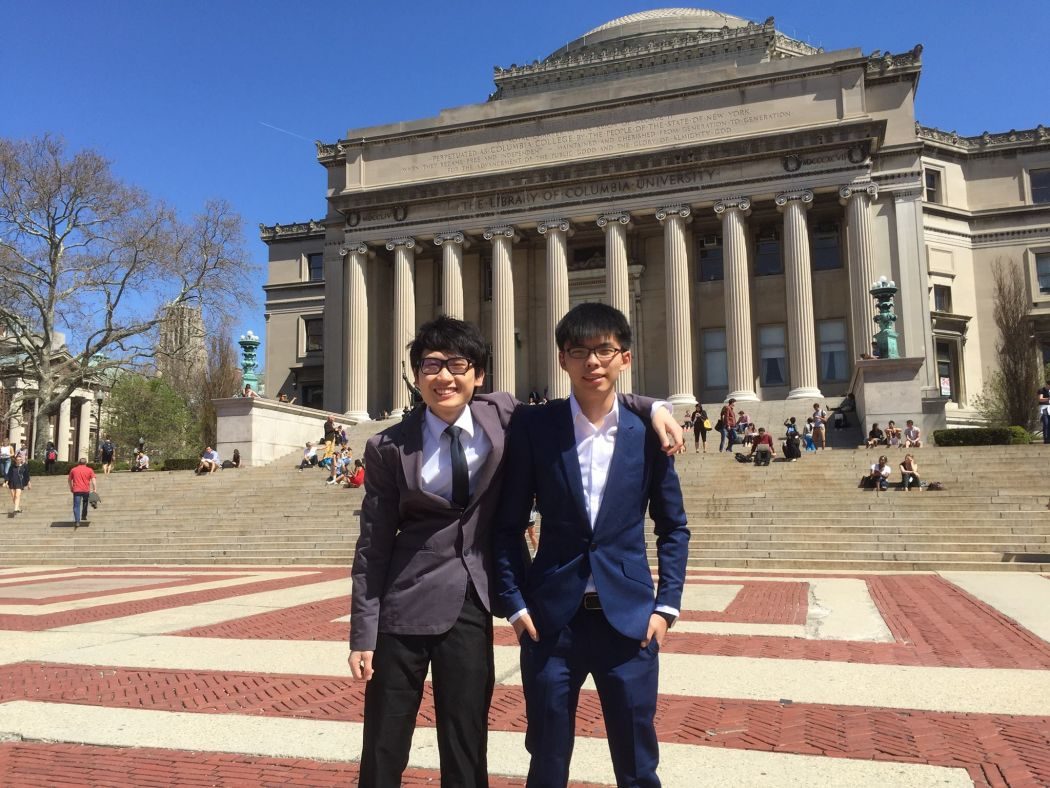China’s foreign affairs organ has engaged in an op-ed battle with Hong Kong activists Joshua Wong and Jeffrey Ngo, after the duo wrote an article on Hongkongers’ right to self-determination.
Ngo, a postgraduate history student of New York University, told HKFP that he anticipated Beijing to be “extremely troubled by calls for self-determination even though that is a right Hong Kongers deserve,” but did not expect that the Chinese government would give such a prompt response.

Op-ed battle
Wong and Ngo published an article on October 14 about the historical context in which Hong Kong people were denied the right to self-determination in the World Policy Blog, a website run by the think tank World Policy Institute.
Four days later, diplomat Song Zhe of China’s Office of the Commissioner of the Ministry of Foreign Affairs in Hong Kong rebutted the Hong Kong duo in the Wall Street Journal. The article, entitled Self-determination in Hong Kong is a non-issue: Historically, legally and culturally, the city belongs to China was published in Chinese in local newspaper Ming Pao last Thursday.
Wong responded to Song’s article in Ming Pao on Saturday, reiterating his view on the denial of Hongkongers’ right to self-determination by the Chinese Communist Party.
In response, the Office wrote a piece again in Ming Pao on Monday, telling Wong to familiarise himself with history and “common sense in international law.” The activists said they will be publishing another response to Song in the Wall Street Journal.
‘Inevitable direction’
“I think this will be going back and forth,” said Ngo, calling the exchange between Chinese officials and Hong Kong activists “unprecedented.”

Ngo said he believed Beijing engages in the public discussion because it wants to make their case to the international community – for the same reason that he and Wong wrote the first article. He said: “Self-determination is a right Hong Kongers deserve, so Hong Kongers certainly need a better understanding of it.”
Ngo said that he expected Beijing to continue its attacks on self-determination advocates in Hong Kong. “But this is an inevitable direction that we are now headed toward, as reflected in last month’s LegCo election results,” he said, referring to the election of several self-determination advocates into Hong Kong’s legislature, including Wong’s colleague Nathan Law of the Demosistō party.
The activist said that writing articles in local and international newspapers helps facilitate the discussion, “which may otherwise be difficult elsewhere,” as self-determination is less easy to understand than the concepts of democracy and independence. Self-determination also “inevitably relates to world history and international law,” Ngo added.
‘Historical mistake’
Wong and Ngo argued that when Hong Kong’s status as a non-self-governing territory was removed at China’s request at the United Nations in 1972, the move effectively stripped Hong Kong of its right to self-determination as guaranteed by the UN Charter to all former colonies.

After 1972, “Hong Kong continued to be, by every definition, a British colony for another quarter-century,” said Ngo. “Removing it from the list of non-self-governing territories is a historical mistake.”
In his first op-ed, Song said Hong Kong was under the Chinese government’s effective control before the Opium War, and that Hong Kong is an “inalienable” part of China as stipulated by the territory’s mini-constitution. Hong Kong also shares the same cultural origins with China. The diplomat concluded that there has never been a “Hong Kong nation” and hence self-determination is a non-issue.
Wong rejected Song’s argument, saying that Hong Kong was not part of the People’s Republic China when it was established in 1949, but had been a British colony since 1842. “This shows that Hong Kong was indeed entitled to self-determination in accordance with international law,” said Wong.
The duo wrote in the World Policy Blog earlier: “We ought to regain Hong Kongers’ right to self-determination from the international community so that the people, rather than the authoritarian regime in Beijing, can truly decide our own future.”
